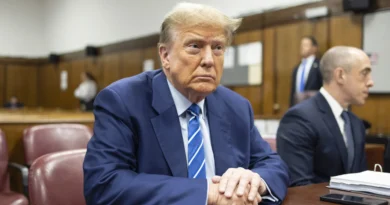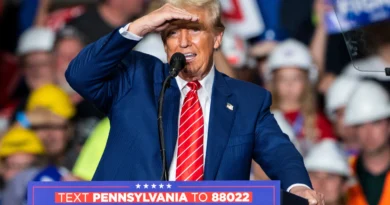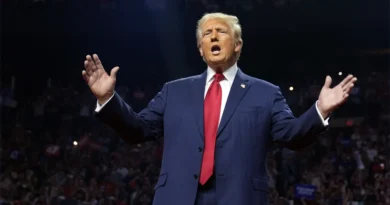Mexican demonstrators block Congress over proposals to make judges stand for election

MEXICO CITY (AP) — Protesters in Mexico City blocked entrances to Congress Tuesday over proposals that would make judges stand for election.
A mix of court employees, students and other critics chanted and strung ropes across entrances to the lower house of Congress.
Many employees, including those at the Supreme Court, have gone on strike to protest constitutional reforms proposed by President Andrés Manuel López Obrador’s Morena party that they say would politicize and de-professionalize the court system.
Under the current system, judges and court secretaries, who act as judges’ assistants, slowly qualify for higher positions based on their record. But under the proposed changes, any lawyer with minimal qualifications could run, with some candidacies decided by drawing names from a hat.
The government claims courts are corrupt, while critics say it is a power grab by the president and a blow to judicial independence.
The ruling Morena party has the two-thirds majority in Congress needed to approve the reforms. The party’s congressional leader, Rep. Ricardo Monreal, said the vote would go ahead, but perhaps not at the official Congress building.
Read More: Trump Suggests Debate Rules Are Set. Harris’ Team Says Otherwise
Monreal said there were no plans to abandon the reforms, and said legislators might be called to session at a hotel or convention center farther from the city center.
“This reform is going ahead,” Monreal said in a taped statement. He asked legislators not to try to force their way into Congress headquarters, saying “we don’t want to provoke any incidents.”
One of the protesters, Javier Reyes, a 37-year-old federal court worker, pledged to remain at Congress for as long as it takes.
“The party with the majority could take control of the judicial branch, and that would practically be the end of democracy,” Reyes said.
Mexico’s courts have long been plagued by corruption and opacity, but in the last 15 years they have been subject to reforms to make them more open and accountable, including changing many closed-door, paper-based trials for a more open, oral-argument format.
Voices both at home and abroad say the new changes could mark a setback in the effort to clean up courts. However, the changes also include a time limit for judges to rule on many cases to combat a tendency for some trials to stretch out over decades.
López Obrador said last week he has put relations with the United States and Canadian embassies “on pause” after the two countries voiced concerns over the proposed judicial overhaul.
Watch Movies: My Flixer HD
Analysts, judges and international observers fear it would stack courts with politically biased judges with little experience. The planned overhaul has spurred major protests and strikes and wide criticism from investors and financial institutions.
Last week, American Ambassador Ken Salazar called the proposal a “risk” to democracy that would endanger Mexico’s commercial relationship with the United States. López Obrador lambasted the ambassador, saying he violated Mexican sovereignty.
After Morena and its allies won overwhelming majorities in the June 2 elections, López Obrador has pledged to push forward with other constitutional changes that would eliminate most independent regulatory and oversight agencies.



